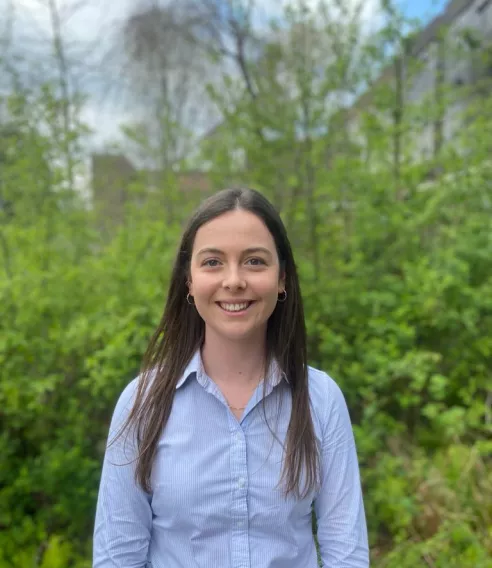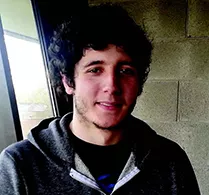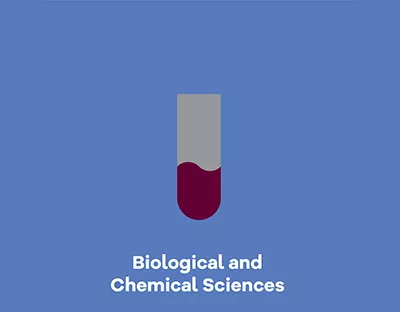Key Info
Bachelor of Science in Pharmaceutical and Industrial Chemistry
Entry route(s):
Are you interested in a career that can really make a practical contribution to helping address the challenges that presently face the world, e.g. the discovery of new drugs to fight disease, or inventing new materials for biomedical devices?
Have you a flair for science and technology and would like to use these talents in a well-paid, intellectually satisfying and productive career as a professional chemist?
If so, then this may be the programme for you.
Why Study Pharmaceutical and Industrial Chemistry at UL?
The Pharmaceutical & Industrial Chemistry degree course qualifies you for employment in a variety of professional careers in the pharmaceutical, biopharmaceutical, biomedical and chemical sectors. The course structure combines both theory and practical work to ensure graduates are well prepared for the challenges of a position in each of these fields upon graduation. Fundamental and applied aspects of organic, inorganic, physical and analytical chemistry are covered as well as key elements of computational chemistry and chemical engineering.
In the third year of the programme, you will spend eight months as a full-time paid employee of a pharmaceutical or chemical company during the work placement period (Cooperative Education). The course is accredited by the Institute of Chemistry of Ireland and the Royal Society of Chemistry (RSC) with graduates eligible for RSC Chartered Chemist status.
Answers to frequently asked questions:
- Honours Maths is NOT an entry requirement - ordinary level B3 Maths will see you through the course if you have a C3 in any higher level Science subject;
- Chemistry is NOT an entry requirement - you would have to do some catching up, however, in the first year.
Learn more about our courses and upcoming events
What you will study
The programme is of four years duration. Having followed a broad common first year (LM123) where students will learn about a variety of topics including;
- Chemistry (Inorganic, Organic, Analytical and Physical)
- Computing
- Mathematics
- Introductory Physics
- Introductory Biochemistry
The second-year builds upon these fundamentals while introducing modules in Process Technology and Photochemistry. During the third and fourth years students will undertake additional modules in Polymer Chemistry, Process Technology, Safety in Industry, Computational Chemistry, Chemical Nanotechnology, Advanced Analytical Chemistry and Pharmaceutical Formulation. The Cooperative Education work placement occurs in year three from early January to the end of August.
Entry Route LM123 Biological and Chemical Sciences (Common Entry)
|
Year 1 |
Semester 1 |
|
Semester 2 |
|
CH4701 |
General Chemistry 1 |
BY4102 |
Biology for Biosciences |
|
BY4001 |
Biology 1 |
CH4102 |
Organic Chemistry 1 |
|
MA4601 |
Science Mathematics 1 |
PH4142 |
Introduction to PHYSICS |
|
CH4021 |
Laboratory Calculations |
MA4602 |
Science Mathematics 2 |
|
ER4011 |
Introduction to Environmental & Biosciences |
CH4031 |
General Chemistry 2 (INORGANIC) |
|
CH4051 |
Introduction to Applied Chemistry and Biochemistry |
CH4041 |
General Chemistry 2 (PHYSICAL) |
|
CS4131 |
Introduction to Scientific Computations |
|
|
| Semester 3 | Semester 4 | ||
| MA4603 | Maths 3 | MA4604 | Maths 4 |
| CH4003 | Physical Chemistry 2 (Adv Kinetics and Photochemistry) | CH4004 | Physical Chemistry 3 (Phase Equilibria) |
| CH4303 | Analytical Chemistry 1 | CH4304 | Analytical Chemistry 2 (Separation Methods) |
| CH4103 | Organic Chemistry 2 (Mechanism & Reaction) | CH4104 | Organic Chemistry 3 (Biomolecules and Heterocycles) |
| CH4203 | Inorganic Chemistry 2 (Periodicity and Transition Elements) | CH4404 | Process Technology 1 (Process Modelling and Control) |
| Semester 5 | Semester 6 | |
| CH4005 | Physical Chemistry 4 (Electrochemistry) | Cooperative Education |
| CH4305 | Analytical Chemistry 3 (Solids and Surface Analysis) | |
| CH4015 | Organic Chemistry 4 (Polymers) | |
| CH4405 | Process Technology 2 (Fluid Flow and Heat Transfer) | |
| CH4415 | Process Technology 3 (Reactor Design and Operation) | |
| Specialist Elective 1* one of | ||
| CH4025 | Photochemistry | |
| CH4415 | Process Tech 3 |
| Semester 7 | Semester 8 | ||
| CH4417 | Pharmaceutical Formulation | CH4008 | Organic Pharm Chemistry 2 |
| CH4407 | Process Technology 4 (Mass Transfer Separations) | CH4306 | Analytical Chemistry 4 (Advanced Spectroscopy) |
| CH4007 | Organic Pharm Chemistry 1 | CG5052 | Batch (Pharmaceutical) Process Engineering |
| CH4907 | Final Year Project 1 | CH4908 | Final Year Project 2 |
| Specialist Elective 1* One Of | Specialist Elective 2* One Of | ||
| ER4627 | Safety and Industry | CH4017 | Chemical Nanotechnology |
| CG4017 | Bioprocess Engineering | CG4008 | Process Troubleshooting |
Entry requirements
| Additional considerations |
Please refer to the entry requirements for |
|---|---|
| Non-EU Entry Requirements |
|
How to apply
| Where are you applying from? | How to Apply |
|---|---|
| Ireland | Irish students must apply to UL via the CAO. More information can be found here. |
| The UK | Students who have completed their A-Levels can apply to UL via the CAO. More information can be found on the Academic Registry website. |
| The EU | EU Students can apply to UL via the CAO. More information can be found on the Academic Registry website. |
| Non-EU country | If you are outside of the EU, you can apply for this degree here. |
Fees and funding
Student course fees are broken into three components - Student contribution, Student Levy and Tuition Fees.
A number of illustrative examples of fees for this course based on the current fee levels have been set out in the tables below.
An explanation of the components, how to determine status and the criteria involved is provided below the examples as is a list of possible scholarships and funding available.
EU Students with Free fees status in receipt of a SUSI grant
| HEA pays | Tuition Fees | €4,262 |
| SUSI pays | Student contribution | €3,000 |
| Student pays | Student Levy | €102 |
| Total | €7,364 |
EU Students with Free fees status not in receipt of a grant
| HEA pays | Tuition Fees | €4,262 |
| Student pays | Student contribution | €3,000 |
| Student pays | Student Levy | €102 |
| Total | €7,364 |
Students with EU fee status not in receipt of a grant
| Student pays | Tuition Fees | €4,262 |
| Student pays | Student contribution | €3,000 |
| Student pays | Student Levy | €102 |
| Total | €7,364 |
Non-EU Students
| Student pays | Tuition Fees | €21,798 |
| Student pays | Student Levy | €102 |
| Total | €21,900 |
Student course fees are comprised of the following components:
Student Contribution
Annual charge set by the government for all full-time third level students. All students are liable unless they have been approved for a grant by Student Universal Support Ireland (SUSI). Please refer to https://www.studentfinance.ie to determine your eligibility for a grant and for instructions on how to apply. The current student contribution is set at €3000.
Student Levy
All students are liable to pay the Student Levy of €102. Please note the Student Levy is not covered by the SUSI Grant.
Tuition Fees
These are based on Residency, Citizenship, Course requirements.
Review the three groups of criteria to determine your fee status as follows
-
Residency
- You must have been living in an EU/EEA member state or Switzerland for at least 3 of the 5 years before starting your course
-
Citizenship
- You must be a citizen of an EU/EEA member state or Switzerland or have official refugee status
-
Course Requirements
(all must be met)
- You must be a first time full-time undergraduate (Exceptions are provided for students who hold a Level 6 or Level 7 qualification and are progressing to a Level 8 course in the same general area of study).
- You must be undertaking a full-time undergraduate course of at least 2 years' duration
- You cannot be undertaking a repeat year of study at the same level unless evidence of exceptional circumstances eg serious illness is provided (in which case this condition may be waived)
Depending on how you meet these criteria your status will be one of the following -
- Free Fee Status: You satisfy all three categories (1, 2 and 3) and therefore are eligible for the Higher Education Authority’s Free Fees scheme.
- EU Fee Status: You satisfy both the citizenship and residency criteria but fail to satisfy the course requirements and are liable to EU fees.
- Non EU Fee Status: You do not meet either the citizenship or residency criteria and are therefore liable to Non EU fees.
More information about fees can be found on the Finance website
These scholarships are available for this course
| Title | Award | Scholarships Available |
|---|---|---|
| BD Science and Engineering Undergraduate Scholarship | €2,000 for one year | 6 |
| Chemifloc Ed Storey Scholarship in Chemical Sciences | €6,000 | 1 |
| Johnson and Johnson WiSTEM2D Programme |
These scholarships are available for all courses
| Title | Award | Scholarships Available |
|---|---|---|
| All Ireland Scholarships - sponsored by J.P. McManus | €6,750 | 125 |
| Brad Duffy Access Scholarship | €5,000 for one year | 1 |
| Bursary for my Future Scholarship | €2,750 one off payment | 4 |
| Civic Engagement Scholarship | €1500 | 1 |
| Cooperative Education Award | 1 medal per faculty | |
| Elaine Fagan Scholarship | €1,500 | |
| Financial Aid Fund | ||
| Hegarty Family Access Scholarships | €5,000 for one year | 2 |
| Higher Education Grants & VEC Grants | ||
| Irish American Partnership Access Scholarships | €5,000 | 2 |
| Paddy Dooley Rowing Scholarship | €2,500 | |
| Plassey Campus Centre Scholarship Programme | ||
| Provincial GAA Bursaries Scheme | €750 | |
| Stuart Mangan Scholarship | ||
| The Michael Hillery and Jacinta O’Brien Athletics Scholarship | Various benefits equating to over €7,000 in value | |
| UL Sports Scholarships | Varies depending on level of Scholarship | Multiple |
Your future career
Employability skills from this degree
- Analysing and problem-solving
- Monitoring/maintaining records and data
- Working in teams
- Communicating (verbal and written)
- Excellent laboratory techniques
- Specific knowledge in the traditional fields of chemistry, inorganic, organic, physical, analytical and materials
- Strong mathematical and numerical ability
- Time management
- IT skills
Further Study Options
- GradDip in Chemical Engineering
- Bachelor of Medicine, Bachelor of Surgery (Graduate Entry)
- MA in Business Management
Job titles for graduates with this degree
Graduates progressing directly into employment take up a wide variety of roles. The following provides a sample of initial roles listed on the Graduate Outcomes Survey by graduates approximately one year after graduation:
- Graduate Research & Development Chemist
- Teaching Assistant
- Operations Associate
- Product Design Lead
- Production Engineer
- Regulatory Affairs Specialist
- Research Chemist
Student Profiles

Emily Hill
In 2018 Emily started in the Biological and Chemical Sciences common entry course and later chose one of the four exit routes. Emily completed her Bachelor of Science degree in Pharmaceutical and Industrial Chemistry in the University of Limerick in 2022. During her time in UL she carried out her eight month co-operative placement in Regeneron as a manufacturing intern.
Later Emily decided to go on to further study after her undergraduate course. She was awarded an Irish Research Council Government of Ireland Postgraduate Scholarship and joined the O’Reilly research group as a 1st year PhD student in September 2022. Her PhD titled ‘Next generation pharmaceutical processing: Bridging clinical practice with predictive modelling tools and continuous manufacture methods’, will focus on the continuous manufacture of active pharmaceutical ingredients and in particular on spray drying.
Claire Rooney
I chose the BSc in Pharmaceutical and Industrial Chemistry because I liked chemistry in school and was always interested in the pharmaceutical industry. The course offered a wide range of chemistry modules and UL???s tutoring programme meant that support was available to help me do well in what I found to be the tougher modules.
My work here at Abbot is primarily project based. It is very varied and some of my daily tasks include: performing testing on raw materials and finished goods, dealing with representatives from contract labs, statistical trending of results, design of experiments, investigative work, presenting to management and many others.
My four years at UL equipped me with many of the necessary skills I use at work everyday, such as planning, technical writing, communication and presentation skills.
Claire's tip
If I was to give one piece of advice to school leavers it would be to do a course that you think you will like over one you think you will be good at. It is a lot easier to spend time working in college on something that is of interest to you. Enjoy your time in UL - it is a brilliant campus and would still be my choice of college if I were doing the leaving cert this year.
Claire is currently employed as a Chemist on the graduate programme of Abbot Ireland


Killian Stokes
If you have a keen interest in chemistry, this is the degree for you! This course initially deals with the fundamentals of chemistry. Throughout the years it then adds to this with more detail on the subjects through interesting lectures and enjoyable practical laboratories. It also incorporates some basics of process engineering which in the current age is a necessity in industry.
As well as the interesting laboratory work, the course offers refreshing, new ways of learning. I enjoy the fact that we study topics which are at the forefront of the chemical industry including various analytical methods and nanotechnology. Also, through the final year project, the course will give you the opportunity to find out if you might be interested in research through a postgraduate course after your final degree.
Co-Op at UL offers a fantastic opportunity to get first-hand industrial experience as part of your degree. On my placement, I worked at Bristol-Myers Squibb Cruiserath in Dublin where I was assigned many varied tasks and projects. I thrived on the level of responsibility given to me as a student on Co-Op and felt I gained excellent experience in this field of pharmaceuticals. Some of the work I was assigned called for analytical skills and I had the opportunity to present my results and findings to management, which further improved my organisational and communication skills.
Killian is currently completing his Ph.D. in Nanotechnology at the Bernal Institute, in the University of Limerick.

